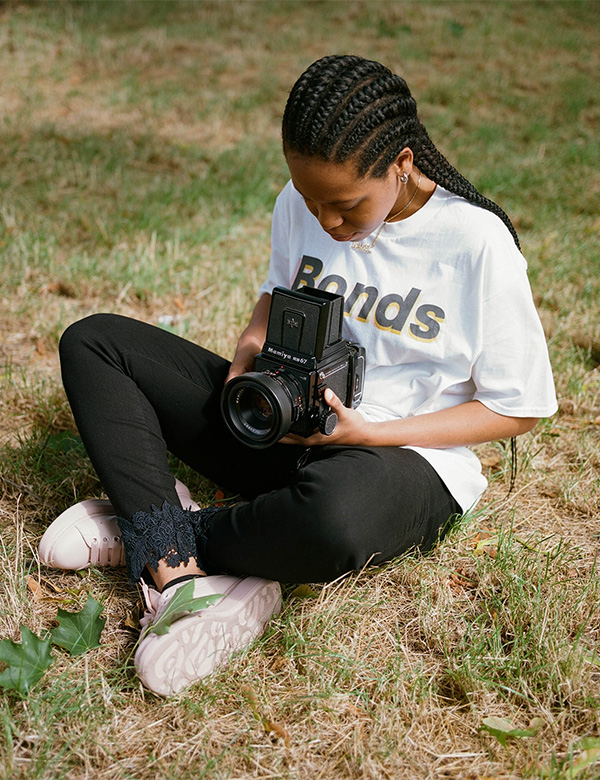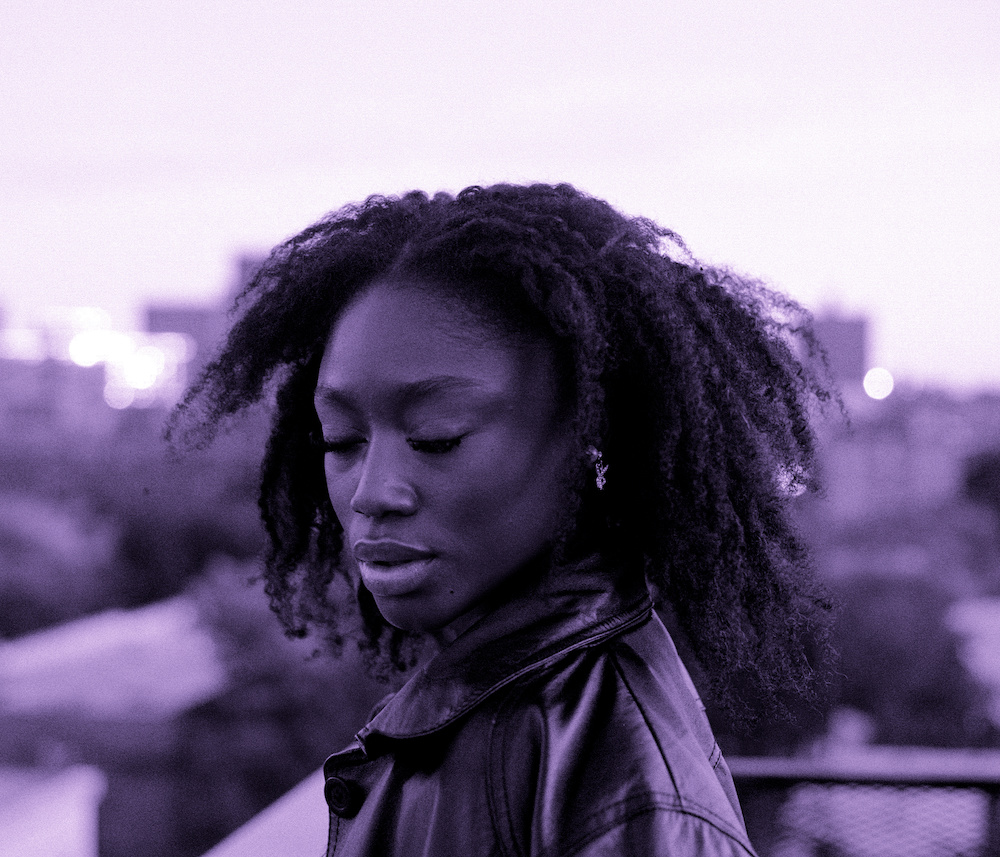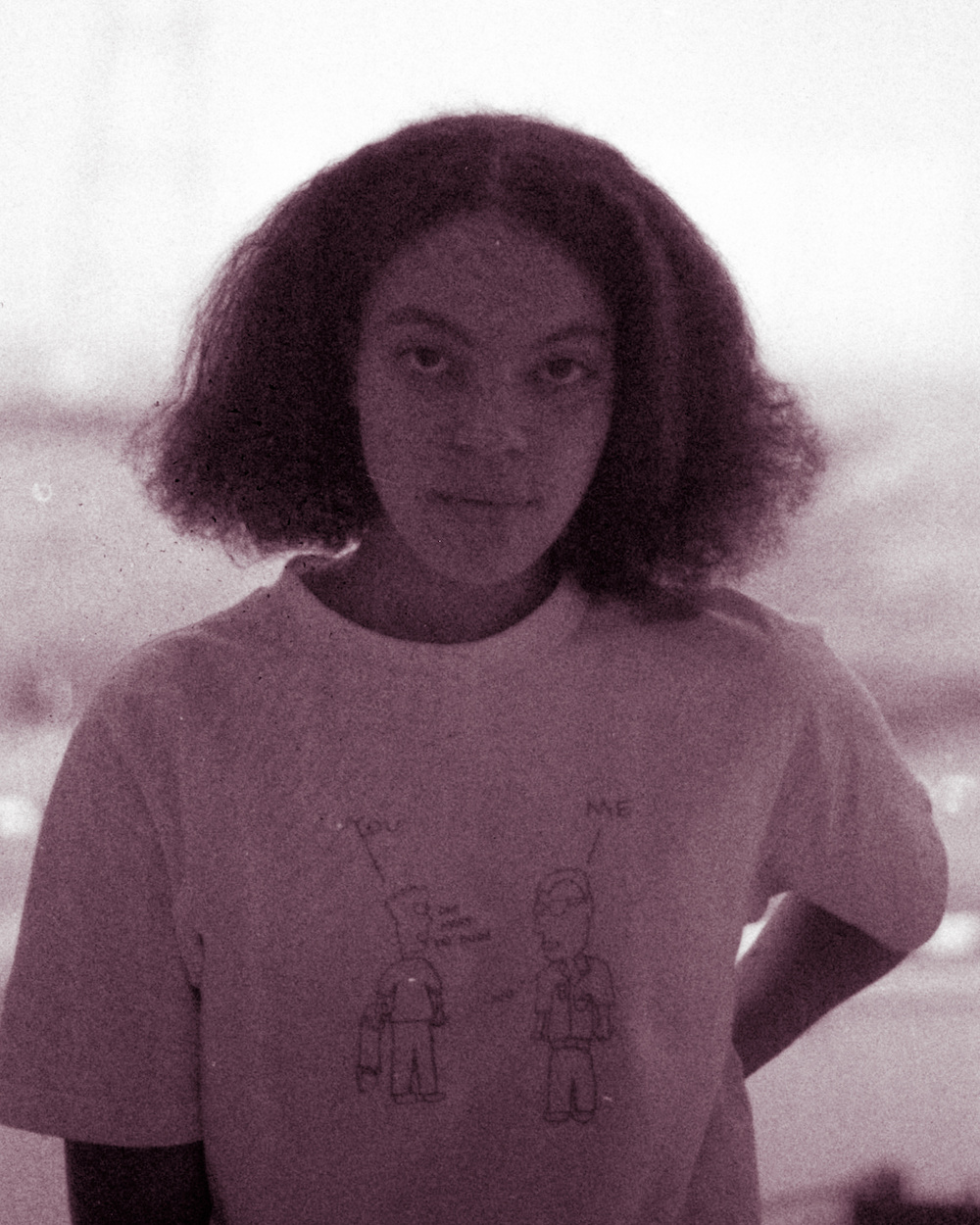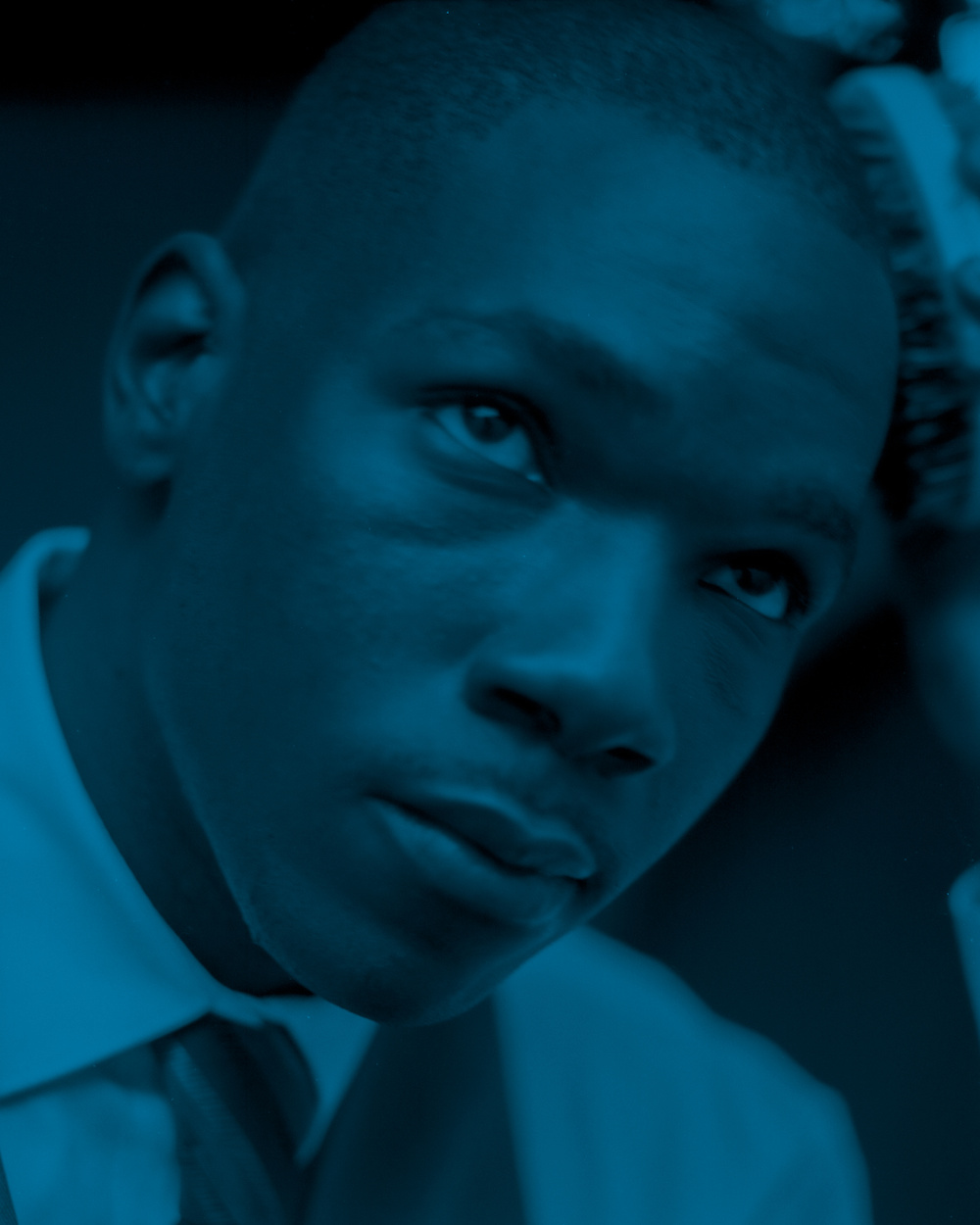
Isabel
Okoro
B. 2001
Lagos, Nigeria
colour and feel (2020-)

colour and feel 1 (2020)
C-print, 48” x 38”

colour and feel 2 (2020)
C-print, 20” x 25”

colour and feel 3 (2020)
C-print, 24” x 44”

colour and feel 4 (2020)
C-print, 26” x 32”
In Living Colour
by Connor Garel
An encounter with the colour red isn’t the same for a person who is angry as it is for one freshly in love, although it’s ostensibly the same red both people are seeing. To the jazz musician, blue could easily recall melancholy where someone less sentimental might see calm, or balance. All our characteristics — our cultures, our histories, our latent biases — converge on how we relate to colour, which can, in some circumstances, induce physiological reactions. With her series colour and feel (2020-), the photographer Isabel Okoro asks these questions of the viewer’s psyche: how, and to what extent, might colour affect the response to these monochromatic portraits, which capture quiet moments in the artist’s imagined black utopia?
These images, quoted from a larger diaristic project, take inspiration from Carrie Mae Weems’s Colored People (1989-90). This series of portraits of black children — captured at the age when race begins to disrupt innocence — referenced the multitudinous “shades of blackness” and reflected on those social hierarchies built solely on colour and its corresponding privileges. Where Weems asks what colour means, Okoro is interested in what colour does. The psychological question she poses is reciprocal: how might the viewer’s present mood determine how they match a colour with an emotion, and how might that colour then, in turn, modify the viewer’s mood?
Okoro’s subjects, caught in states of tenderness and introspection, are all young black people in late adolescence or early adulthood, around the photographer’s own age. If a sense of ease or innocence or possibility permeates them, it’s because they belong to a remote society of the artist’s making: Eternity, a black utopic space free of violence and oppression, populated by Okoro’s friends and family, each of whom she “immortalizes” by photographing them. The photograph becomes not an act of possession, but a gesture of love. The subject is not captured, but freed.
BIOGRAPHIES/CONTACT
Isabel Okoro is a photographer and budding director currently living, working and schooling in Toronto ON. Isabel developed an interest in photography at the age of 12 while attending a boarding school in Lagos, but it wasn’t until she moved to Toronto in 2016 and received her first camera that she began to develop her artistic practice. Isabel is currently in her senior year at the University of Toronto, completing a double major in Neuroscience and Psychology. Isabel’s work largely focuses on the Black youth experience and exploring the interactions between the motherland and the diaspora. She is interested in how photography and film can be pushed to tell stories that we need to see but haven’t been awarded the opportunity to create. A self-proclaimed dreamer, Isabel’s work is a combination of thoughts that acknowledge the past, confront the present and imagine a future.
Find more info about Isabel’s work on her website, and follow her on Instagram here.
Connor Garel is an arts and culture writer and editor from Toronto. His writing on arts and culture has appeared in BuzzFeed, VICE, Canadian Art, Vanity Fair, and FASHION Magazine, among other places. Previously, Connor was an associate editor at HuffPost Canada, and he is the current Cannonbury Editorial Fellow at The Walrus Magazine. You can find him on Twitter at @nopecon.
DOWNLOAD EXHIBITION TEXTS
Each artist was invited to choose a writer to respond to their work included in the exhibition, or in a few cases, the curator suggested a writer for them. All of these collected essays can be downloaded as a PDF document here.
* PHOTO OF ISABEL OKORO: Kemka Ajoku
External Links
“A trailer of sorts into my mind & the world I’m building in there.”
– Isabel Okoro
